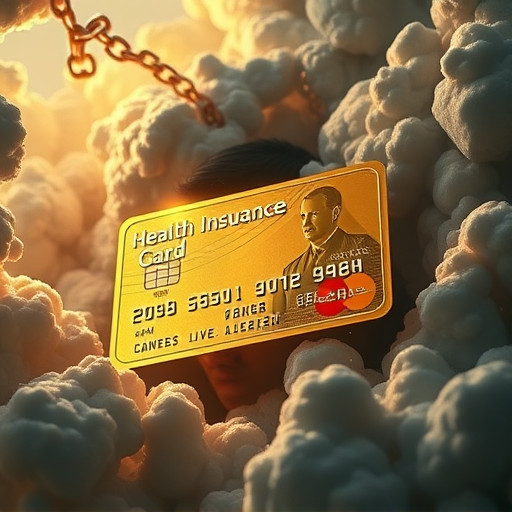The Essential Impact of Health Insurance During Emergencies – Understanding Its Critical Role

In an era of unforeseen global crises and health emergencies, understanding The Role of Health Insurance During Emergencies is more relevant than ever. Health insurance acts as a powerful safety net, providing access to necessary medical care when it’s needed most. With the unpredictability of health-related incidents that can strike at any moment—from natural disasters to sudden illnesses—having adequate coverage can mean the difference between recovery and financial ruin. This article explores the multifaceted roles health insurance plays during emergencies, examining who benefits, how it functions, its pros and cons, alternatives available, step-by-step processes for utilizing insurance in emergencies, and valuable tips for navigating this complex landscape.
Who Benefits from Health Insurance During Emergencies
Health insurance serves a variety of stakeholders during emergencies, including individuals, families, healthcare facilities, and the broader community. Understanding who benefits helps clarify why health insurance is so integral during crises.
Individuals and Families
When an emergency strikes, individuals and families are often the most directly affected. Having health insurance ensures that they have immediate access to medical services without the burden of exorbitant costs.
In an emergency situation, such as a car accident or sudden illness, insured individuals are more likely to receive prompt treatment. This accessibility can be vital; the faster someone receives medical attention, the better their chances of recovery. Additionally, families with health insurance can focus on caring for their loved ones rather than worrying about overwhelming medical bills. The peace of mind that comes from knowing you have coverage cannot be overstated—it allows families to navigate stressful times with one less worry.
Healthcare Providers
Healthcare providers also benefit from health insurance in emergencies. When patients arrive with insurance, hospitals and clinics can quickly bill insurers for services rendered, which eases the financial strain on medical facilities.
Moreover, having patients with insurance means healthcare providers can offer comprehensive care without needing to hesitate due to payment concerns. This enables them to prioritize patient health over administrative burdens, ensuring that they can fully concentrate on delivering high-quality care in crisis situations.
Communities
At a broader level, communities benefit from widespread health insurance coverage. When more individuals are insured, it reduces the overall financial burden on local healthcare systems, making them more resilient in times of crisis.
This communal financial stability fosters a healthier population, as insured individuals are more likely to seek preventive care. As a result, communities can reduce the strain on emergency rooms, allowing for better allocation of resources during peak times of need, such as during pandemics or natural disasters.
How Health Insurance Functions During Emergencies
Understanding how health insurance operates during emergencies sheds light on its crucial role. Knowing what steps to take can help individuals maximize their benefits during critical moments.
Activation of Coverage
When an emergency occurs, the first step is to activate your health insurance coverage. Many people may not know that health insurance policies often have specific provisions for emergencies, which can include unlimited service access, no pre-authorization requirements, and coverage for urgent medical transport.
It is essential to familiarize yourself with your policy before an emergency arises. Having a thorough understanding of your coverage will enable you to act swiftly when time is of the essence. For example, knowing whether your plan covers ambulance services or out-of-network hospital visits can save valuable minutes in deciding where to go for care.
Filing Claims
After receiving care during an emergency, one of the next steps involves filing claims with your insurer. This process can vary significantly depending on the type of insurance you have—HMO, PPO, or another plan.
Make sure to keep all documentation related to your emergency visit, including invoices, treatment plans, and discharge papers. Submitting complete and accurate claims will facilitate quicker reimbursements and minimize out-of-pocket expenses. In some cases, your healthcare provider may handle this process for you, but it’s still wise to stay informed and involved.
Follow-up Care
https://www.profitablecpmrate.com/dexuw7mhmv?key=6503b2f78ec4209747696c3d01ba1d23
Finally, health insurance plays a pivotal role post-emergency. Once immediate medical needs have been addressed, follow-up appointments are crucial for monitoring recovery.
Insurance ensures that these appointments are covered, allowing patients to seek further treatment or rehabilitation without the additional stress of financial burdens. Engaging in follow-up care can prevent complications and ensure a smoother recovery, reinforcing the importance of comprehensive health insurance coverage throughout the entire healing process.
Pros and Cons of Health Insurance During Emergencies
Exploring the advantages and disadvantages of health insurance during emergencies reveals a well-rounded perspective. While the benefits often outweigh the drawbacks, understanding both sides is essential for informed decision-making.
Advantages
One of the primary benefits of having health insurance during emergencies is financial protection. Medical expenses can escalate rapidly, especially for severe conditions requiring hospitalization, surgery, or long-term care.
By providing financial coverage, health insurance alleviates potential economic distress. Insured individuals are less likely to delay seeking care out of fear of costs, which can lead to worsened health outcomes. Furthermore, many insurance policies cover preventative care, which can mitigate the likelihood of emergencies occurring in the first place.
Another significant advantage lies in the network of healthcare providers. Insurance gives individuals access to a wide range of professionals and facilities, ensuring quality care during emergencies. Patients can choose from a list of approved providers, which can usually be found online or through customer service hotlines.
Disadvantages
On the flip side, health insurance can come with complex limitations and exclusions. Some policies may not cover certain scenarios, leading to unexpected out-of-pocket costs. For instance, if an emergency arises far from home, individuals may find themselves treated at out-of-network facilities, resulting in higher expenses.
Additionally, navigating the health insurance system can sometimes be overwhelming. Patients may face challenges in understanding their benefits, determining coverage levels, or dealing with claims processing. Without appropriate education and support, individuals could miss out on essential services that would ease their recovery journey.
Alternatives to Traditional Health Insurance During Emergencies
While traditional health insurance is often a lifeline during emergencies, there are several alternative options worth considering. These alternatives can provide additional layers of security, particularly for those unable to afford conventional policies.
Short-Term Health Insurance
Short-term health insurance offers temporary coverage for individuals facing gaps in their insurance. This type of policy can be beneficial for those who are transitioning between jobs or waiting for other insurance to kick in.
Although short-term plans typically lack the extensive benefits of full health insurance, they can provide essential coverage during critical moments, such as emergencies. Keep in mind that these plans often do not cover pre-existing conditions, so it’s essential to read the fine print before committing.
Health Savings Accounts (HSAs)
Health savings accounts allow individuals to set aside pre-tax dollars specifically for medical expenses. HSAs can be a smart complement to a high-deductible health plan, providing a financial cushion for emergencies.
The key advantage of HSAs is their tax benefits; contributions grow tax-free, and withdrawals for qualified medical expenses are also tax-free. This can create a robust financial resource during health emergencies, helping to manage unexpected costs effectively.
Community Health Programs and Nonprofits
Community health programs and nonprofit organizations can also serve as alternatives for individuals without adequate health insurance. Many localities offer free or low-cost services for uninsured residents, focusing on emergency care and preventive measures.
These programs provide critical support, especially during public health emergencies, by ensuring vulnerable populations receive care. Researching local resources can empower individuals to leverage support systems when they need it most.
Step-by-Step Guide to Navigating Health Insurance During Emergencies
Knowing how to effectively utilize health insurance during emergencies can make all the difference in securing timely care. Here is a straightforward guide to help individuals navigate the process smoothly.
Assess Your Coverage
Before an emergency occurs, take the time to assess your health insurance coverage thoroughly. Review your policy documents and understand what services are included. Identify key factors like network restrictions, deductibles, co-pays, and coverage limits.
Being proactive in this assessment enables you to swiftly access necessary services when faced with an urgent situation. You’ll feel empowered to make informed decisions and avoid unnecessary delays in care.
Make a Plan
Having a plan in place can significantly alleviate stress during emergencies. Identify nearby hospitals or urgent care facilities that accept your insurance and ensure you know the quickest routes to reach them.
Create a list of emergency contacts — from family members to healthcare providers— who can assist in navigating the situation. Additionally, keep your insurance card easily accessible, whether in a physical wallet or digital format. This preparedness will help streamline the process when seconds count.
Communicate Effectively with Providers
Once you’ve secured medical attention, effective communication with healthcare providers is paramount. Clearly express your symptoms, previous medical history, and any medications you’re currently taking.
If you have questions regarding the procedures or treatments suggested, don’t hesitate to ask for clarification. Open dialogue can help ensure you receive the most appropriate care tailored to your individual needs.
Tips for Maximizing Health Insurance During Emergencies
Maximizing health insurance benefits during emergencies can enhance the quality of care received. A few practical tips can empower individuals and families to make the most of their coverage.
Stay Informed About Policy Changes
Health insurance policies can change frequently due to shifts in legislation or provider contracts. Regularly review your policy updates and stay informed about changes that may affect your coverage.
This vigilance will enable you to adjust your expectations and strategies, ensuring that you’re prepared for any eventuality.
Build a Healthcare Network
Cultivating relationships with trusted healthcare providers creates a valuable support system. Establishing rapport with primary care physicians or specialists can foster open lines of communication, making it easier to navigate emergencies.
These established connections often lead to more personalized care, which can greatly improve outcomes during emergencies.
Consider Supplemental Insurance
Supplemental insurance policies, such as critical illness or accident coverage, can add another layer of protection. These policies pay out cash benefits in specific situations, helping to offset costs associated with emergencies.
Evaluate your health risks and consider investing in supplemental policies, especially if you have a family history of certain diseases or engage in high-risk activities.
FAQs
What should I do immediately after experiencing a medical emergency?
Your first step should be to seek medical attention. Call emergency services or go to the nearest hospital. Once you are stabilized, gather all necessary information, including your insurance details, to present to healthcare staff.
Does health insurance cover emergency room visits?
Yes, most health insurance plans cover emergency room visits. However, be aware of any network limitations or deductible requirements that may apply.
Can I use my health insurance for out-of-network providers during an emergency?
In general, yes. Most insurance plans have provisions for emergency situations that allow patients to receive care from out-of-network providers. Be sure to check your policy for specific guidelines.
Will my insurance premium rise after filing a claim for an emergency?
Filing a claim doesn’t automatically mean your premiums will increase. However, insurance companies may consider your overall claim history when determining future rates. It’s best to consult your insurance agent for personalized insights.
Should I review my health insurance policy regularly?
Absolutely! It’s essential to review your health insurance policy regularly to ensure it meets your evolving needs, especially with annual open enrollment periods. Staying informed can help you make necessary adjustments.
Conclusion
The Role of Health Insurance During Emergencies is undeniably significant. It provides crucial financial protection, facilitates access to care, and bolsters community resilience. By understanding who benefits from health insurance, how it functions, its pros and cons, available alternatives, and effective navigation strategies, individuals can prepare themselves for the unpredictable nature of emergencies.
Investing in health insurance is not merely a financial decision; it’s a commitment to prioritizing personal health and wellbeing. Ultimately, being proactive and informed enhances your ability to manage emergencies effectively, ensuring you and your loved ones receive the care needed when it matters most.



Leave a Comment